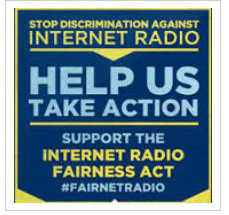
On January 22, 2016, the Copyright Royalty Board published SoundExchange's notices of intent to audit broadcasters — including Beasley Broadcast Group Inc., Greater Media Inc., Saga Communications Inc., Townsquare MediaBroadcasting, and Univision Communications Inc. — and commercial webcasters — including Pandora Media Inc., Batanga, DMX, and Muzak Inc. — for payments each made to SoundExchange pursuant to certain statutory licenses.
SoundExchange is the government-sanctioned organization charged with (1) collecting royalty payments for digital transmission of copyrighted sound recordings by services such as the broadcasters and commercial webcasters named above and (2) distributing those royalties to the copyright owners.
Because the royalty reporting and payment system for these uses can be fraught with oversights and miscalculations, SoundExchange may audit a licensee in order to verify that the number of performances has been accurately reported and the proper amount of royalties paid for the music used. For digital transmissions, determining whether music is performed and/or experienced by a listener is not always easy; technical questions about streaming, disrupted connections, and IP addresses are often examined. The audit must be conducted by a CPA, and the licensee must be given a chance to respond and make corrections before the audit is submitted to SoundExchange. If underpayment is found, SoundExchange may assess penalties, ranging from a late fee to, for cases where underpayment is over 10 percent, the cost of the audit itself..

Standards for calculating digital transmission royalties are an
issue of recent debate and a topic discussed by the Congressional
Research Service of the Library of Congress in its recent report
titled "Copyright Licensing in Music Distribution,
Reproduction and Public Performance." The Copyright Royalty
Board calculates the royalty rate applicable to
"compulsory" licenses for music, including for digital
transmission of music. The Digital Millennium Copyright Act (DMCA)
established different standards for these compulsory licenses,
depending on the type of digital audio service and whether such
service existed at the time of the DMCA's enactment (1998).
Pre-1998 providers pay a rate based on the factors listed in
section 801(b) of the Copyright Act, whereas post-1998 providers
are subject to the "willing buyer/willing seller"
standard. As a result, post-1998 subscription services such as
Pandora pay substantially more royalty fees than others such as
Sirius/XM radio do. The Fair Play Fair Pay Act of 2015 would
require the  Copyright Royalty Board to apply the
willing buyer/willing seller standard across the board. The
Internet Radio Fairness Act of 2012, sponsored by companies like
Pandora, takes the opposite approach, proposing to eliminate the
current willing buyer/willing seller standard and apply the section
801(b) factors to all digital audio service providers. However,
organizations like SoundExchange oppose such legislation, as it
would promote the payment of less than fair market value for music.
The results of SoundExchange's audit may contribute to this
debate and shape the evolution of SoundExchange's position on
issues of digital transmission royalties, reporting, and fair
compensation for artists and copyright owners.
Copyright Royalty Board to apply the
willing buyer/willing seller standard across the board. The
Internet Radio Fairness Act of 2012, sponsored by companies like
Pandora, takes the opposite approach, proposing to eliminate the
current willing buyer/willing seller standard and apply the section
801(b) factors to all digital audio service providers. However,
organizations like SoundExchange oppose such legislation, as it
would promote the payment of less than fair market value for music.
The results of SoundExchange's audit may contribute to this
debate and shape the evolution of SoundExchange's position on
issues of digital transmission royalties, reporting, and fair
compensation for artists and copyright owners.
The content of this article is intended to provide a general guide to the subject matter. Specialist advice should be sought about your specific circumstances.
